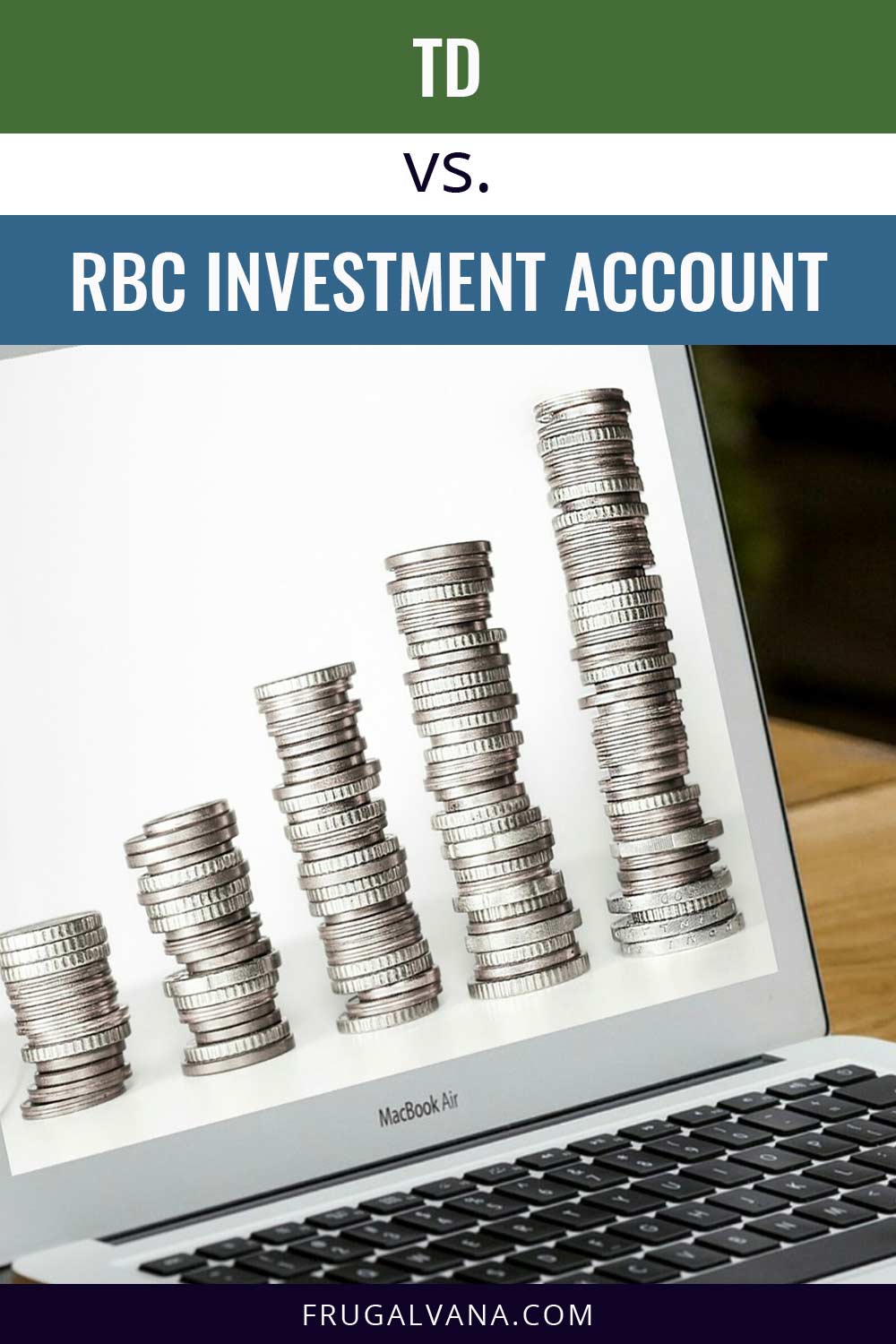Investing your money can be an intimidating task, especially when it comes to selecting the right investment account. With so many options out there, it can be tough to know which one is the right fit for you.
That’s where TD and RBC come in – these are two of the most well-known investment accounts.
Whether you’re a seasoned investor or just starting out, understanding the differences between these two accounts can help you make an informed decision about your finances.
So let’s dive in and compare TD versus RBC investment accounts so you have all the information you need to make the right choice for you.
What are the Similarities?
So let’s start with the similarities between these two investment accounts. First, both accounts are great options for anyone looking to invest their money.
Both TD and RBC offer a wide range of investment products to choose from, such as stocks, bonds, mutual funds, and ETFs. Other similarities include the following:
- Each of these is a registered investment account that allows you to invest your money tax-free or tax-deferred.
- Both offer online and mobile banking options making it easier for investors to manage their accounts on the go.
These two investment accounts have a lot in common. They both have a variety of investment products, convenient online and mobile banking options, and registered investment accounts.
However, there are also some key differences between these accounts that you’ll want to consider before making a final decision.
What are the Differences?
Let’s get into those differences right now. In comparison, they may have some similarities, as we’ve just mentioned key differences that you’ll need to keep in mind when choosing the right account for you.
The biggest difference between TD and RBC is the fees associated with their investment accounts. TD charges a flat commission fee per trade, while RBC charges a percentage-based commission fee.
This means that if you’re making frequent trades, TD might be the most cost-effective option for you might be more cost-effective.
Other differences include:
- Each of these counts has different account minimums. TD has a lower account minimum than RBC making it more accessible to investors who are just starting out.
- The variety of investment products varies as well. Both offer a range of investment options. TD is known for its more extensive selection of ETFs, while RBC is known for its proprietary mutual funds.
- Lastly, the user experiences accounts can also be very different. TD’s online and mobile banking platforms are often lauded for their user-friendly interface and use of use, while RBC’s platform is known for its advanced features and tools.
Pros and Cons: TD vs. RBC
Understanding the differences and similarities is just the first step to making your decision. A good pros and cons list is always very helpful if you’re anything like us. So we have curated one for you below:
TD
Pros:
- Lower account minimum
- Extensive selection of ETFs
- User-friendly online and mobile banking platforms
- Flat commission fee per trade
Cons:
- Limited access to personalized investment advice and services
- Less access to proprietary investment products
- Not as cost-effective for larger trades
RBC
Pros:
- More personalized investment advice and services
- Wide selection of proprietary mutual funds
- Advanced online mobile banking platform with a range of tools and features
- Percentage based Commission fees
Cons:
- Higher account minimums
- A limited selection of ETFs
- Percentage-based commission fee, which is less cost-effective for frequent traders
Which One is Easier to Manage?
When it comes to managing your investments, ease of use is key. So which one of these accounts is easiest to manage?
Well, it depends on your individual needs and preferences. For example, TD may be the easier option for you if you’re looking for a user-friendly online mobile banking platform.
TD’s platform is known for its intuitive interface and ease of use, making it simple to manage and investments on the go. For example, you can easily check your account balances, view your transaction history and make trades with just a few clicks.
If, on the other hand, you want a more advanced platform with a range of tools and features, RBC may be the better choice.
RBC’s online mobile banking platform offers brighter advanced features such as a customized watch list, interactive charting tools, and detailed market data.
While these features can be a bit more complex, they can be helpful for investors who are looking to take a more hands-on approach to their investments. In the end, the easiest account to manage will depend on your comfort level, technology, and investment goals.
Which One is More Common?
When it comes to popularity, both TD and RBC are well-known investment account providers.
However, TD is generally considered to be more common among investors. TD has a strong reputation for providing accessible and affordable investment options, making it a popular choice among novice investors.
In addition, TD’s extensive section of ETFs has made it a popular choice for those who are looking to diversify their portfolio. The popularity of these accounts can vary depending on factors such as geographic location, investor preferences, and market conditions.
Regardless of which account you choose, it’s important to carefully consider your investment goals and do your own research to determine which account is the right fit for you.
Final Thoughts on TD Vs. RBC Investment Account
Both TD and RBC offer unique investment account options with their own set of pros and cons. Deciding which account is right for you depends on your financial goals and trading habits.
Regardless of which account you choose, both offer convenient online and mobile banking options that make it easy to manage investments from anywhere at any time.
So whether you’re just starting or have been investing for years, take the time to do your research and choose an account balance with your investment strategy.

